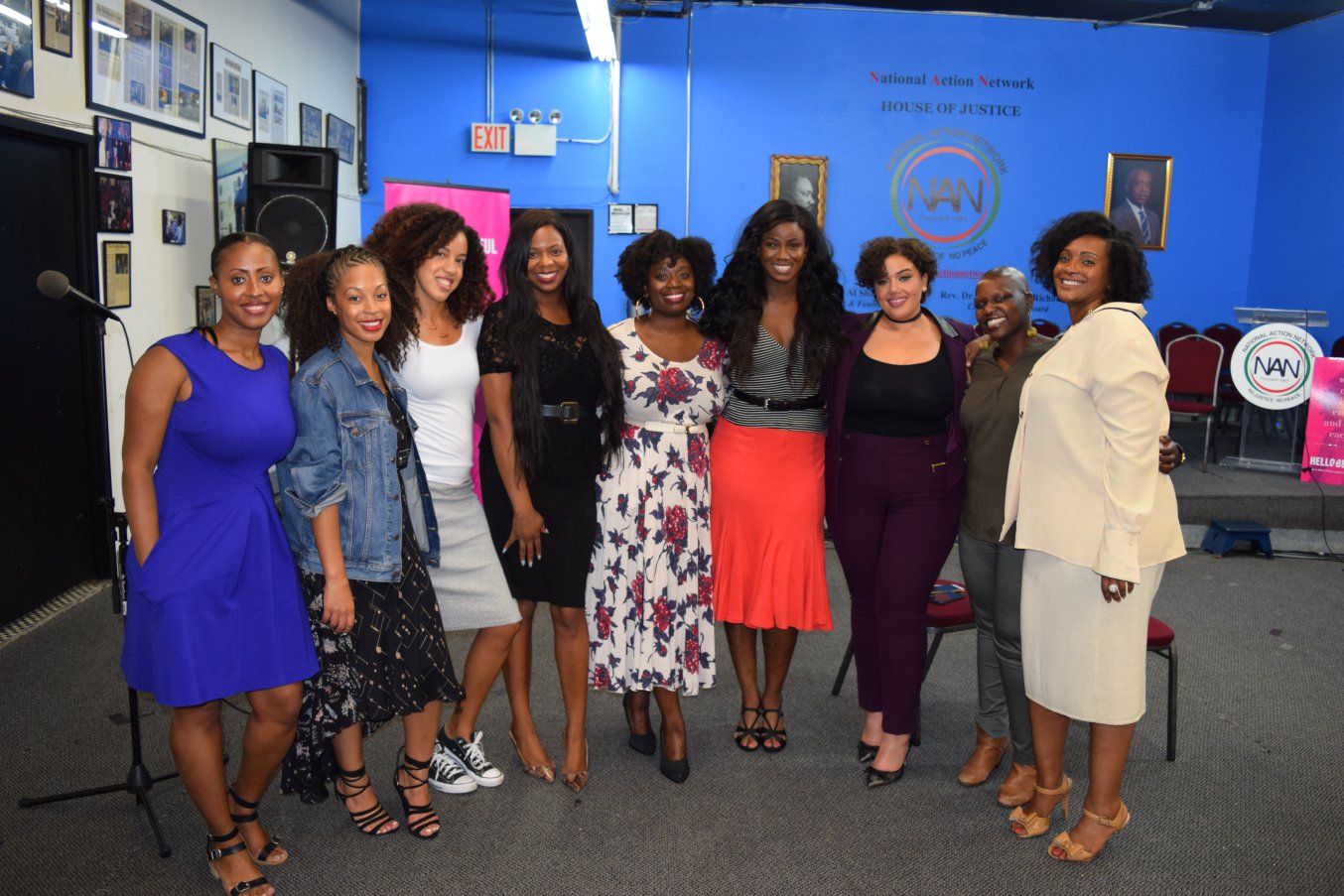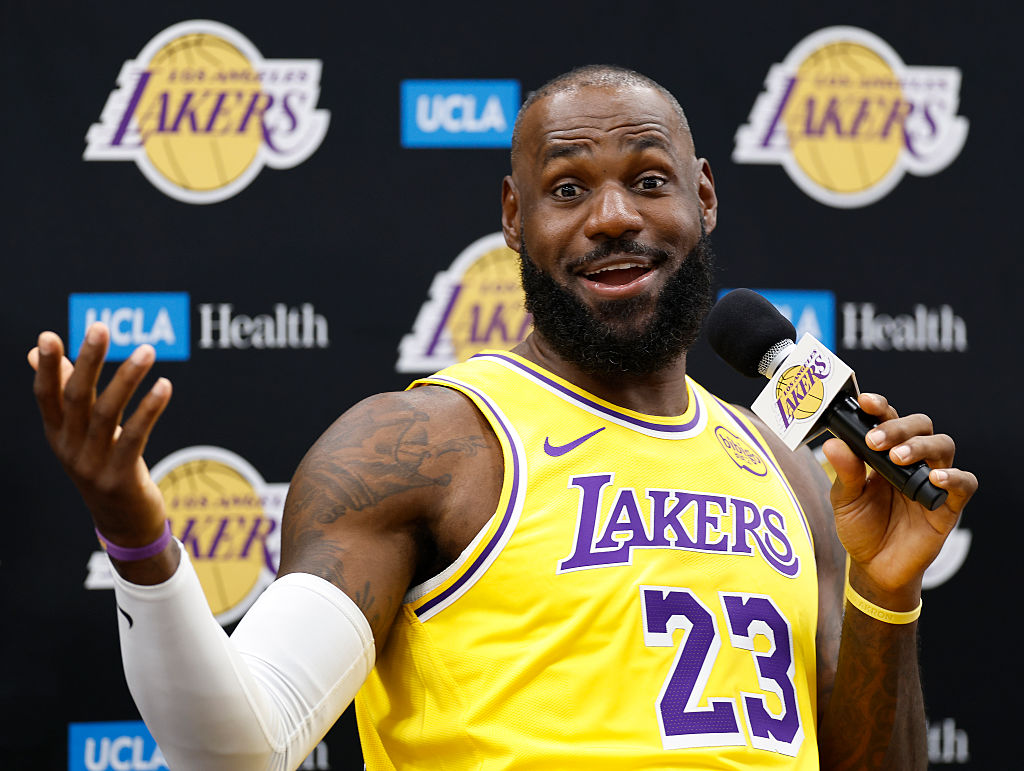How Black Hollywood Is Failing The Black Press

Source: Danielle James / iOne Digital
I was a budding journalist nervously going over my iPhone notes for my first red carpet interview when I noticed it. I was proudly standing on the HelloBeautiful place marker waiting for the behind-the-scenes chaos to begin when I spotted around my feet the strategic placements of almost every other Black outlet in the space. It doesn’t take a veteran to realize the Black press cluster at the end of red carpet lineups makes Black reporters susceptible to the brush-by of celebs and publicists who politely quip, “Sorry, ran out of time” as they scurry out of view. Black media often receives rushed statements, or no comment at all, even though that same Black celebrity stopped for E! Online just moments ago.
The strategic cafeteria table-esque segregation of Black press on red carpets is one of many micro-aggressions we face as Black journalists. And while being placed at the tail-end of a carpet is more indicative of the predominately white media system and its value assessment of Black press, these oversights are even more hurtful when they come from your own people. The fact is, too many of our Black celebrities are simply not supporting us.
The fact is, too many of our Black celebrities are simply not supporting us.
Most, if not all, Black celeb power seeds in our communities. The dominant corporations and media powers-that-be mine our talent and resources for the “next big thing.” And Black media celebrates when our people are plucked out of our silos and make it. We cheer as they float up into mainstream heaven with the hopes that, as they ascend, that they will still feel our loose grips on their balloon strings and tug back.
But all too often, that mutual support just isn’t felt. In many cases, once a celebrity passes a certain status, they completely forget about those same Black media outlets who were among the first to cover them and their talents.
We live in an age where social capital immediately translates into monetary capital. Re-tweets and shares translate into clicks, which drive traffic and advertising dollars and revenue. That’s the reality of our business model. So when small teams of Black journalists take the time and effort to profile a Black celebrity with a large reach and that content isn’t shared with the influencer’s audiences, the impact reverberates through us all.
Once a celebrity passes a certain status, they completely forget about those same Black media outlets who were among the first to cover them and their talents.
Just simply scan some of your favorite Black celebs’ Twitter and IG feeds and you would discover links to and RTs of interviews they did with white outlet after white outlet, while Black-owned, Black-run press is often omitted from the conversation.
I don’t write this with the intent to say the erasure is entirely malicious or even conscious. The lure of white validation is something we’ve all been conditioned to seek. In 2016, Very Smart Brothas writer Damon Young, unpacked how he, and many other Black people, subconsciously value “the attention of the mainstream platforms more than the Black ones”–even if they don’t show us the same love back. We still throw up our hands in outrage when we lose Oscars and Grammys and Golden Globes to mediocre white talent, when in reality those systems were never created to celebrate us in the first place.
After Beyoncé’s Lemonade Album of the Year Grammy snub in 2016, Solange echoed this sentiment urging Black folks to “Create your own committees, build your own institutions, give your friends awards, award yourself, and be the gold you wanna hold my g’s.”
Black press was born from that same place of urgency. Early 19th-century Black newspapers like the Freedom’s Journal, the North Star and the Frederick Douglas Papers sought to inform Black people from Black perspectives during a time when literacy rates were dismal among our people.
After thriving for a century, many Black newspapers folded, unable to attract advertising dollars in the midst of economic crisis.
Fortunately, the spirit of those early Black media outlets was reincarnated digitally, with outlets like The Root, Ebony, The Grio, Blavity, Black Voices, Madame Noire, Essence, and HelloBeautiful’s own parent company iOne Digital now carrying the torch and commitment to telling our stories our way.
In a time when the press and freedom of speech are under attack more than ever before in modern history, the support from our communities and our celebrities is indispensable. When we say Black Lives Matter, we have to talk about this statement beyond the clutches of police brutality: behind every one of our bylines is a Black life. Black jobs matter. Black families matter. Black POVs matters. Black ownership matters. #BlackPressMatters.
Behind every one of our bylines is a Black life. #BlackPressMatters.
And when you have a company, like iOne Digital, which is one of the few remaining Black-owned media companies in the country, snubbed or not acknowledged for our coverage and support of Black interests, it eats away at the foundation of success that keeps our communities alive.
So Black celebs, my brothers and sisters, I urge you to pay attention to the Black journalist at the end of the carpet nervously holding her recorder waiting to snag a quote from you. Tell your publicist that you want to give equal time to People Mag and MadameNoire. Google your name and make a note to retweet or share the latest article from the small Black women’s website that can’t get enough of your style choices. When breaking news happens, make it a point to share coverage from the Black perspective as well as the big headline from CNN. After you complete an interview, post that photo inside our small studios and don’t forget to tag our brands.
We’re all in this together. And nobody wins when the family forgets.












